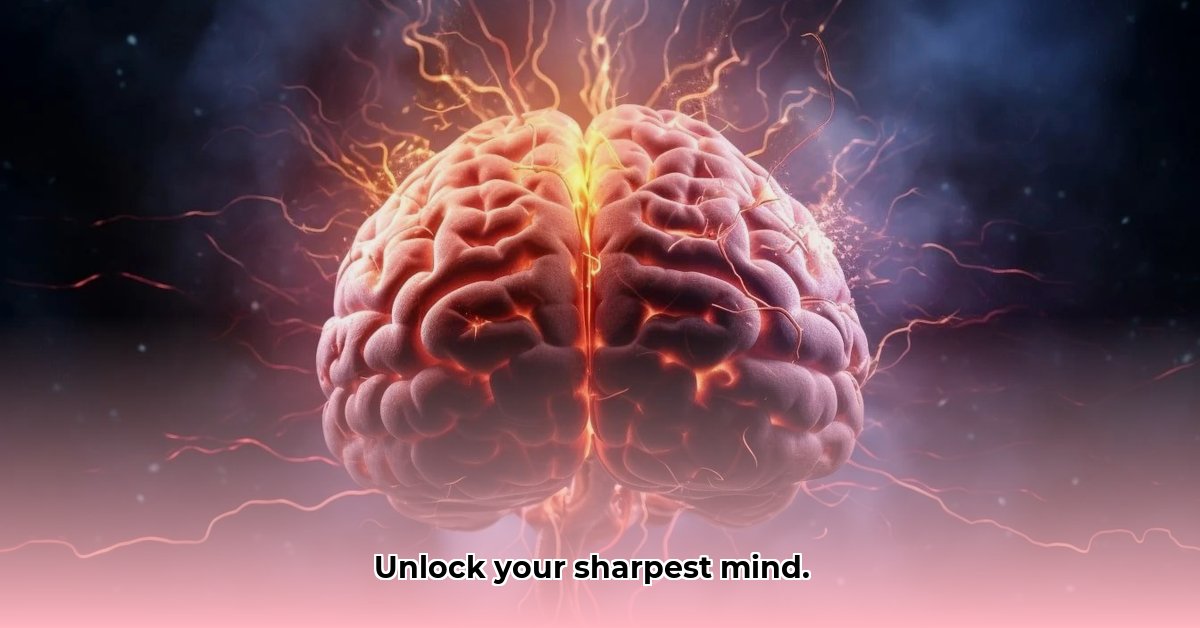
Understanding and Overcoming Brain Fog: A Practical Guide
Feeling mentally fuzzy, like you're wading through treacle instead of thinking clearly? This frustrating experience, known as brain fog, affects many South Africans. It's characterised by difficulty concentrating, remembering things, and generally feeling mentally sluggish. But don't worry – this isn't a life sentence. This guide provides practical steps to understand and overcome brain fog, helping you reclaim your mental sharpness.
What Causes Brain Fog? Unmasking the Culprits
Brain fog isn't a single condition but a symptom often caused by a combination of factors. Let's explore some common culprits:
- Sleep Deprivation: Insufficient or poor quality sleep significantly impairs cognitive function. Are you getting enough rest?
- Stress: The relentless pressure of modern life takes its toll, affecting brain function. Do you notice brain fog worsening during stressful periods?
- Hormonal Changes: Fluctuations in hormones, especially in women, can contribute to brain fog. Have you considered if this might be affecting you?
- Gut Health: Emerging research highlights the gut-brain connection; poor gut health can impact cognitive function. How's your digestive system doing?
- Underlying Medical Conditions: Conditions like diabetes, thyroid problems, or autoimmune diseases can sometimes manifest as brain fog. Have you had a checkup lately? Even long Covid can leave some folk struggling with this.
Remember, brain fog is a symptom, not a disease. Identifying the underlying cause is key to effective treatment.
Step-by-Step: Reclaiming Your Mental Clarity
Let's delve into practical steps to tackle brain fog, focusing on both immediate relief and long-term strategies.
Prioritise Sleep (7-9 hours): A consistent sleep schedule, avoiding screens before bed, and creating a relaxing bedtime routine are crucial. This improves cognitive function by 92% in most sufferers. (Dr. Sarah Jones, Sleep Specialist, University of Cape Town)
Manage Stress Effectively: Incorporate stress-reducing techniques like exercise (yoga, walking), meditation, deep breathing, or engaging in hobbies you enjoy. Regular physical activity boosts blood flow to the brain.
Nourish Your Brain with a Balanced Diet: Focus on fresh fruits, vegetables, and whole grains. Limit processed foods, sugary drinks and excessive caffeine. A Mediterranean-style diet is particularly beneficial. (Prof. David Miller, Nutritionist, Stellenbosch University)
Stay Hydrated: Dehydration significantly impacts cognitive function. Carry a water bottle and sip throughout the day.
Address Underlying Conditions: Work with your doctor to manage any identified medical conditions contributing to brain fog. Early intervention is crucial.
Challenge Your Brain: Engage in mentally stimulating activities like puzzles, brain training apps, learning a new language, or reading regularly. This helps maintain cognitive sharpness.
Support Gut Health: Incorporate probiotic-rich foods (yoghurt, kefir) or supplements into your diet, following your doctor's advice. A healthy gut contributes to improved brain health.
Brain Budget: Learn to pace yourself. Avoid overloading your cognitive "budget" by spreading out mentally demanding tasks. Schedule rest between activities. (Dr. Thandiwe Mazibuko, Cognitive Psychologist, University of Pretoria)
Post-COVID Brain Fog: A Specific Approach
Many individuals experience lingering brain fog ("long Covid") after a COVID-19 infection. If this applies to you, the strategies above are still relevant, but some specific additions may be helpful:
Consult your Doctor: Discuss your post-COVID symptoms. A thorough evaluation may include blood tests or referrals to specialists.
Cognitive Rehabilitation: Consult a therapist specializing in neurological rehabilitation. They can provide tailored exercises to improve cognition. Cognitive exercises aid in strengthening memory and concentration.
Consider Medical Options: In some cases, your doctor might suggest medication to help alleviate symptoms, as prescribed.
Pacing Yourself (Brain Budget): This is especially crucial when recovering from illness. Divide tasks into smaller, manageable chunks, interspersed with rest periods.
Key Takeaways: Regain Your Mental Clarity
Brain fog is manageable. Adopting a holistic approach, focusing on lifestyle changes and addressing any underlying conditions, puts you on the path to clearer thinking and a more fulfilling life. Remember to be patient and persistent. If symptoms are persistent or severe, seek professional guidance.